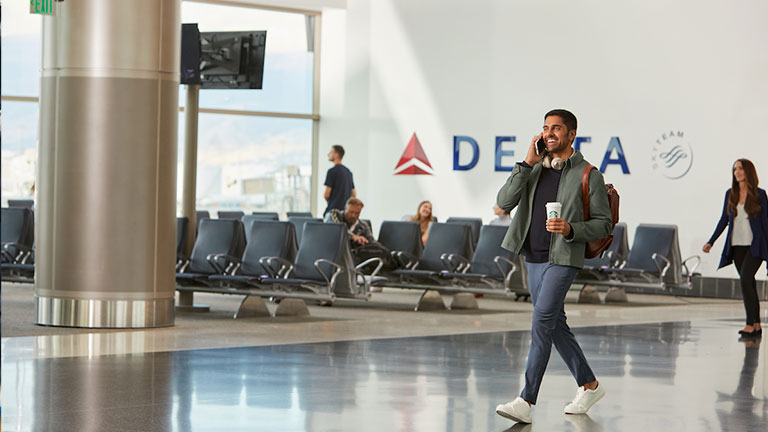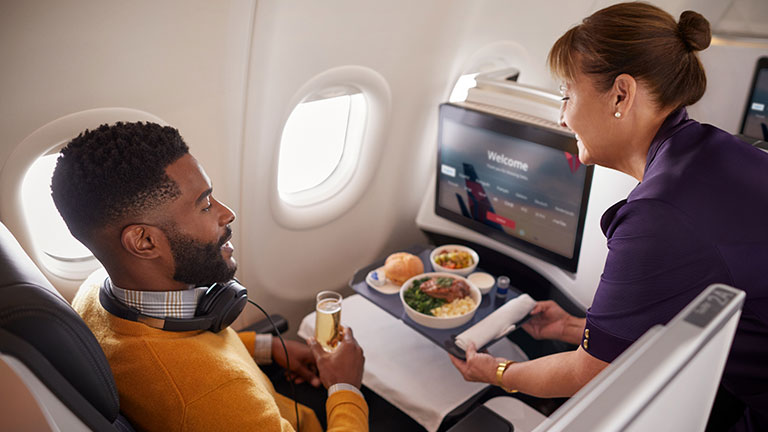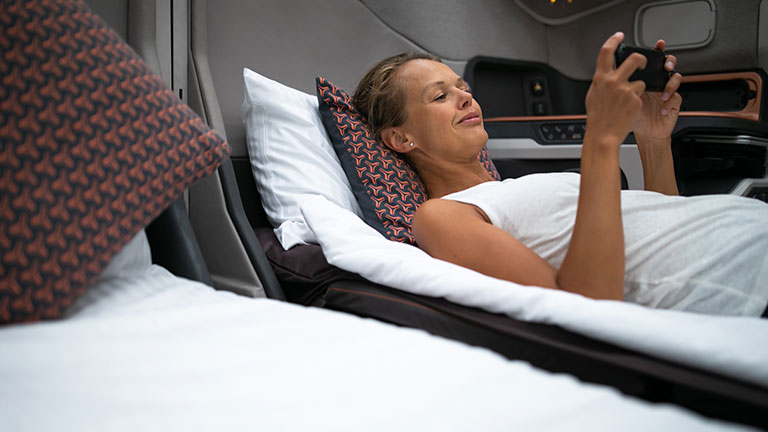
For the past eight years, I’ve held top-tier status with Delta Air Lines. To say I know a thing or two about the ins and outs of elite airline status is an understatement. From the complimentary upgrades and lounge access to priority boarding lanes, it certainly comes with perks. But the pursuit of status can carry a steep price, both in dollars and time.
So, is chasing airline status actually worth it? Here’s how to decide.

The rewards
Let’s start with the obvious: Status generally makes flying better. First-class upgrades, early boarding, free checked bags, lounge access, and bonus miles are just the beginning—and often kick in at lower levels of status.
At the top tiers, such as Delta’s Diamond Medallion, those perks get even juicier, ranging from complimentary same-day flight changes to dedicated phone lines that typically connect you with a live agent within a minute or two. The same is true with United’s Premier 1K and Executive Platinum on American Airlines.
International upgrade certificates mean I’ve flown in lie-flat, first-class seats on 12-hour flights for free. (This luxury can cost more than $10,000.) Moments like this make status feel like a golden ticket.
But even on short-haul routes, perks can make a difference. I’m always upgraded to more comfortable seating and free drinks as soon as I book. I also board early, so there’s always overhead bin space. I don’t wait in lines to check in, drop luggage, or board—eliminating a mountain of small stressors and saving tons of time on my frequent travels. And because I have the top-tier airline status, Delta gives me free CLEAR membership, allowing me to skip security lines.
Among the most game-changing perks of elite status is the surprisingly strong support. When connecting through Paris on a delayed flight with a partner airline, a friend and I missed our connection. Even though it was the partner airline’s fault, it wasn’t offering hotel or meal support to any of the connecting passengers. But Delta gave me a hotel room, meals, and an overnight comfort kit—and even extended all the same perks to my friend as a courtesy. He wasn’t even on my reservation. Only the handful of Diamond passengers on board received this.

The cost
For most frequent flyer programs, achieving airline status requires meeting a level of dollars spent, flights taken, or both. To qualify for elite status, you typically need to either pay premium fares or fly constantly—or both.
In my case, it’s taken flying 50 weeks a year to consistently maintain top-tier status. Some travelers qualify through massive credit card spend on co-branded airline cards, usually tied to business expenses. But for me, it’s been calculated hustle. This has included the following:
- Rerouting through hub cities just to add extra segments that counted toward Medallion Qualification Segments (MQSs), something Delta has since retired
- Paying more for flights simply to earn more Medallion Qualifying Dollars (MQDs)—Delta’s spend-based metric for elite status
- Flying to faraway states and back—without ever leaving the airport—just to hit the annual MQD requirement before the deadline
If that sounds absurd, then you probably don’t fly enough to care—at least according to seasoned frequent flyers. But if you’re in the air constantly, holding on to comfortable seating, free meals, and major time savings can feel critical—even nonnegotiable.

The bottom line
This primarily depends on how often you fly. For frequent flyers who travel monthly or more, elite airline status can absolutely be worth it—especially if you’re flying routes where upgrades are common and lounges are accessible. If you’re close to the threshold near year’s end, a mileage run or a premium fare might make sense.
For casual travelers, however, the juice isn’t always worth the squeeze. You can buy lounge access, pay for extra legroom, and use points to upgrade for occasional flights—all without locking yourself into a single airline’s program. It’s often cheaper this way if you’re not flying often. Not being tied to a single airline’s timetable can also work in your favor.
You should also consider who’s paying. If your boss is footing the bill, sticking with one loyalty program to maximize your “free” benefits can make a lot more sense. If you’re paying out of pocket, it can be smarter to stay flexible and book whatever airline fits your schedule and budget best.
The only upgrade that really matters is the one that makes your travel life easier, so choose airline status only if it truly works for your lifestyle. If you’re ready for the chase, pick the airline with the most flights out of your home airport—and buckle up!

